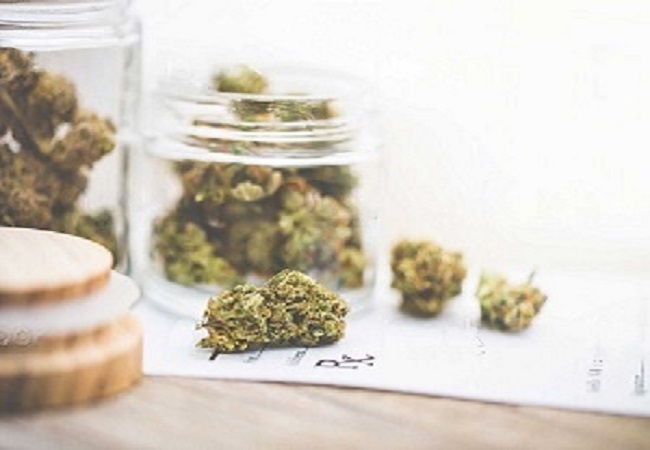Native reserve dispensaries have emerged as significant players in the cannabis market, particularly in regions where Indigenous communities reside. These dispensaries not only provide access to cannabis products but also serve as cultural hubs that promote and celebrate Indigenous heritage. This article explores how Native reserve dispensaries contribute to the preservation and promotion of Indigenous culture while fostering community empowerment and economic development.
1. Cultural Significance of Cannabis in Indigenous Communities
a. Historical Use of Cannabis
Cannabis has been utilized by various Indigenous peoples for centuries, often for medicinal, spiritual, and ceremonial purposes. In many cultures, plants are considered sacred, and their use is deeply intertwined with traditional practices and beliefs. By operating dispensaries that offer cannabis, Indigenous communities are reclaiming their rights to utilize this plant in a manner that honors their heritage.
b. Reconnecting with Traditions
Native reserve dispensaries often provide an avenue for Indigenous people to reconnect with their traditional practices surrounding cannabis. This can include educational programs, workshops, and community events that highlight the historical significance of cannabis within their cultures, thereby fostering a greater appreciation for their heritage among younger generations.
2. Economic Empowerment and Self-Determination
a. Job Creation
Establishing dispensaries on Native reserves creates job opportunities for community members, ranging from cultivation and production to retail and management positions. This economic empowerment is crucial for fostering self-sufficiency and reducing reliance on external sources of income.
b. Revenue Generation
The profits generated by Native reserve dispensaries can be reinvested into the community, funding essential services such as education, healthcare, and infrastructure. By controlling their cannabis sales, Indigenous communities can ensure that the financial benefits directly support their social and economic development.
c. Promoting Entrepreneurship
In addition to job creation, dispensaries can inspire entrepreneurship within Indigenous communities. By providing resources and training, these dispensaries can encourage individuals to start their own cannabis-related businesses, thereby diversifying the local economy and fostering innovation.
3. Cultural Education and Awareness
a. Showcasing Indigenous Products
Native reserve dispensaries often feature products that reflect Indigenous culture and traditions, such as herbal remedies, traditional medicines, and cannabis strains cultivated by Indigenous growers. This not only showcases the unique attributes of Indigenous cannabis but also educates consumers about the significance of these products.
b. Community Engagement
Many dispensaries host events that promote Indigenous culture, such as art exhibits, music festivals, and cultural workshops. These initiatives provide opportunities for community members and non-Indigenous consumers alike to learn about Indigenous traditions, art forms, and cultural practices, fostering mutual respect and understanding.
c. Collaborative Efforts
Native reserve dispensaries frequently collaborate with local Indigenous artists, artisans, and cultural leaders to promote their work and share their stories. This collaboration helps to amplify Indigenous voices and preserve cultural narratives, reinforcing the importance of culture in the cannabis industry.
4. Advocacy and Representation
a. Navigating Legal Challenges
The establishment of Native reserve dispensaries often involves navigating complex legal landscapes. These dispensaries advocate for Indigenous rights and sovereignty, striving to create a cannabis market that respects and honors their autonomy. By taking a stand, they challenge stereotypes and misconceptions surrounding Indigenous peoples and their relationship with cannabis.
b. Promoting Social Justice
Native reserve dispensaries play a role in the broader conversation about social justice and the decriminalization of cannabis. By addressing the historical injustices faced by Indigenous communities, these dispensaries contribute to efforts aimed at rectifying the harm caused by past cannabis prohibitions, including incarceration and marginalization.
c. Building Alliances
Through their advocacy efforts, Native reserve dispensaries can build alliances with other social justice organizations and movements. By working together, they can create a more equitable cannabis industry that supports Indigenous rights and promotes social change.
5. Conclusion
Native reserve dispensaries are more than just retail outlets for cannabis; they serve as vital cultural, economic, and educational hubs within Indigenous communities. By promoting their cultural heritage, empowering their economies, and advocating for their rights, these dispensaries play a crucial role in reshaping the narrative around cannabis and Indigenous identity. As the cannabis industry continues to evolve, the contributions of Native reserve dispensaries will remain essential in fostering a more inclusive and respectful dialogue around Indigenous culture and its connection to this versatile plant. Embracing this dual role will not only benefit Indigenous communities but also enrich the broader cannabis landscape, paving the way for a future that honors and respects the wisdom of Indigenous traditions.



